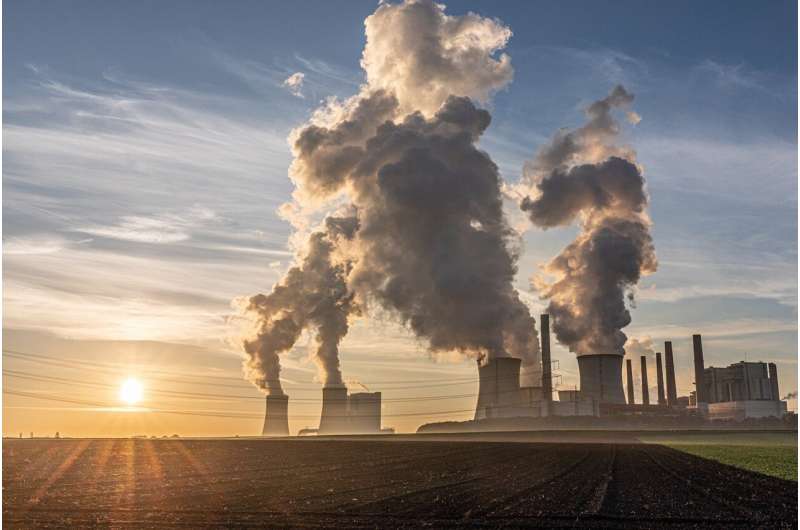Carbon dioxide removal should receive additional financial support, says study

Cleaning up greenhouse gases after they have been emitted should be incentivized by subsidies. New evidence from an economic analysis considering international markets suggests an important reason why subsidies should be higher than the price put on carbon emissions to incentivize their reduction.
In a first-of-its-kind model study, researchers analyze policies for removing carbon dioxide from the atmosphere and storing it underground or in products. The suggested different pricing is not due to technological challenges but linked to an economic effect called leakage.
The study was conducted by the Berlin-based climate research institute MCC (Mercator Research Institute on Global Commons and Climate Change) and the Potsdam Institute for Climate Impact Research (PIK). It has now been published in the Journal of Environmental Economics and Management (JEEM).
"We are looking at climate pioneers, countries that are more ambitious in terms of reducing greenhouse gas emissions than others," says Max Franks from PIK, one of the study's authors. "We have studied how they should subsidize carbon dioxide removal to make it work, hence to create a supply of removal technologies and businesses. This question is relevant, for instance, for the climate club recently founded by the G7 group of major industrial countries. To achieve the Paris climate targets, all available options are needed: we must both reduce and remove emissions, carbon removal capacities are limited, and they can compensate only for a certain share of emissions.
"Accordingly, for policy makers like those of a climate club, the question remains what the best mix of all options and policies is—especially given the fact that other countries continue increasing fossil fuel use, and markets are interconnected."
If climate pioneers buy less oil, for example, then the international oil price falls. "Other countries will see a drop in oil prices and therefore might buy more oil," warns Matthias Kalkuhl, head of the MCC working group Economic Growth and Human Development, who co-authored the study.
"Thus, if the more ambitious countries reduce carbon emissions by, say, 1,000 tons of carbon unilaterally, it might lead other countries to increase their emissions by perhaps 150 tons. The original reduction of 1,000 tons is then de facto only a reduction by 850 tons. Then, we can think of these 150 tons as leaking out through the international oil market." Hence the economic term of leakage.
The overall emissions reduction is, thus, smaller than the emissions reduction in ambitious countries—which is of course bad for our climate. It's different with carbon dioxide removal. If ambitious countries remove carbon from the atmosphere, it does not affect supply and demand for fossil fuel. Therefore, it also does not affect international fossil fuel prices. This is why it makes sense to subsidize each ton of carbon removal more than the carbon price for emissions.
Assessing economic policies for carbon removal is highly relevant since it is considered to be important for achieving the Paris climate targets. Carbon removal technologies include, for example, afforestation, because trees take carbon out of the air naturally and store it in their trunks. Another example is direct air capture, that is, big machines sucking greenhouse gases directly out of the air and putting it in underground reservoirs.
"Our results are particularly important for policy design today and over the next couple of years, where we expect the international climate policy regime to remain fragmented," co-author Kai Lessmann from PIK explains. "In the long run, of course, we need all countries to cooperate in order to achieve the Paris target of keeping the temperature increase relative to pre-industrial times well below 2 degrees Celsius."
More information: Max Franks et al, Optimal pricing for carbon dioxide removal under inter-regional leakage, Journal of Environmental Economics and Management (2022). DOI: 10.1016/j.jeem.2022.102769
Provided by Mercator Research Institute on Global Commons and Climate Change (MCC) gGmbH





















